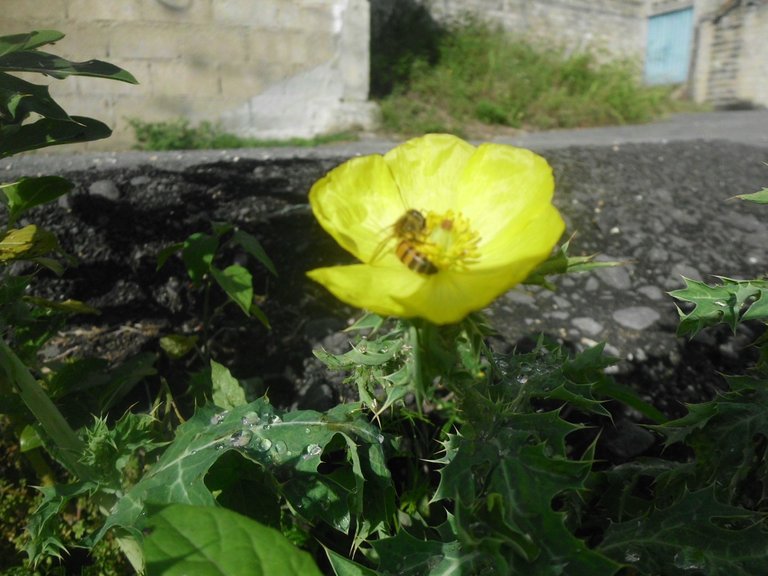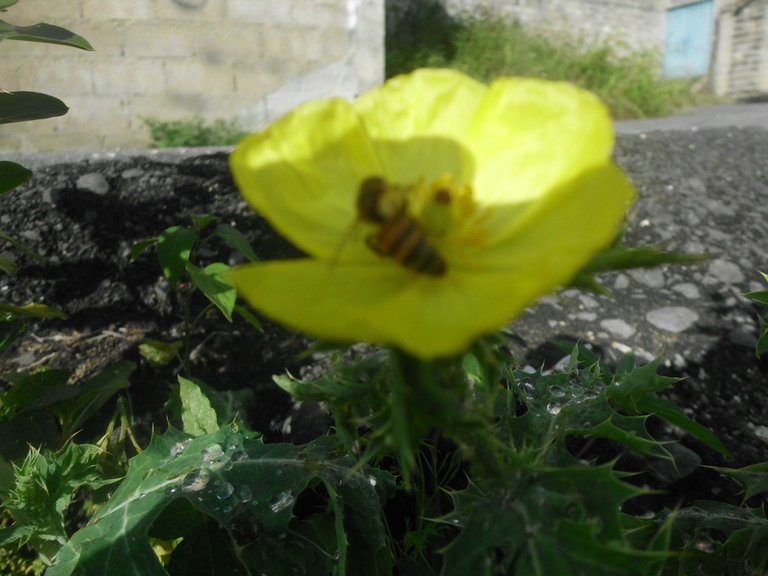THE INHABITANTS OF THE HIVE
AND ITS TASKS
Bees are "social insects", that is, they live forming colonies that may be constituted around 40,000 individuals and that are distributed in a very orderly manner food and work.
In each colony there are three types of individuals: queen, bees workers and drones.
The Queen:
It is the central character of the colony, the only one perfect and fertile female.
It is distinguished from the rest by its length, which is 16 millimeters, and for the wings, which are very short in relation to the body. It has a sting, but only uses it to fight against other queens.
The cell in which it develops is larger than the others and it has an acorn or peanut shape. At birth, it destroys rest of real larvae. If several queens are born at the same time, there is a battle to the death in which the winning queen becomes the maximum authority of the colony.
Fertilization occurs outside the hive, in the so-called "Nuptial flight", in which a group of drones goes out
after her, being fertilized by the strongest and fastest. After of the mating returns to the hive, possibly to not come back out, wearing at the tip of your abdomen part of the genital organs of the drone that fertilized it and with its espermateca (bag of semen) full, containing from 8 to 12 millions of sperm From that moment, the Queen begins her mission: to put an egg to the minute, around 3,000 daily newspapers, and keep the rest of the members of the hive. For this, it secretes a substance that is named of "pheromone", which expands throughout the hive. From This form also slows the construction of real cells and the development of the ovaries of worker bees is prevented. When the old queen decays in her putting or does not segregate enough pheromone, the bees build real estate and deposit in them royal jelly to obtain a new mother.
The worker bees:
They develop in normal cells and form the largest population: 70,000 in spring and about 20,000 in winter. They fulfill many functions depending of his age.
As soon as they are born, they work as cleaners, removing the waste from the cells.
On the fourth day they become in nurseries and feed the larvae and give warmth to the nest breeding. From the tenth day they attend to the queen as ladies of honor. Subsequently they act as fans, segregate wax, make honey, remove foreign bodies and watch over the security of the hive.
Finally, at twenty days and until his death, they go out to the field in search of nectar, pollen, propolis and water. They usually move in a range of 3 kilometers, being its average speed of 30-40 km / hour, leading to out about 40 daily flights and visiting about 400 flowers of the same species.
Upon return they recognize their hive by color, its form and its position. Among them are distinguished by the smell, because each colony has its own characteristic.
If a collecting bee discovers a source of food, When he returns to the hive he tells his companions where he is located and at what distance it is.
For this "dance", describing a series of circles.
thank you for supporting me I appreciate you vote I hope you like my post and continue to support @jesusalbertorios
The life of bees is very short: those that are born in spring
they die at 40 or 50 days; On the contrary, those that
they are born in autumn they live about five months, until they link
with his new companions, in the following spring. his
The main food is honey.! !
!
